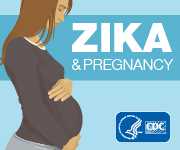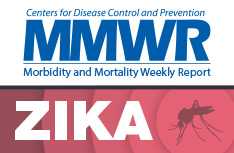Zika Pregnancy and Birth Defects Local Health Department Field Support (FAQ)
Frequently Asked Questions (FAQs)
Can our state health department apply for on-site support through this opportunity?
Yes, state health departments may apply; preference in assignment of resources will be to local health departments (LHDs) and then to other health departments with significant cases and capacity needs. The purpose of field support is to assist local health departments in collecting and reporting accurate, timely, and complete data on pregnancies and infants with laboratory evidence of possible Zika virus infection and infant outcomes, as well as fetuses and infants with specific birth defects with and without Zika virus exposure. Field support will also help pregnant women and children affected by Zika receive the services they need.
Although this opportunity is intended to address the needs of LHDs, we anticipate state health department (SHD) involvement in each LHD application. For example, applications ask for the name of an SHD liaison who will participate in the field assignment. If chosen, we expect that the LHD and SHD will work collaboratively throughout the period of support.
Are territories eligible to apply for on-site support?
Yes, US territories are eligible to apply for support.
We would like to submit a joint application for support along with another local health department in our state. Is this permissible?
Yes. When using public funds, sharing limited resources is encouraged.
Can a Local Health Department apply on behalf of a region or Metropolitan Statistical Area (MSA)?
Whether or not a jurisdiction can apply on behalf of a region or MSA depends on the extent to which the LHD that is applying has the ability to make decisions on behalf of a region or MSA.
Can a state health department (SHD) apply on behalf of the local health department (LHD)?
We anticipate SHD involvement in each LHD application; if chosen, we expect that the LHD and SHD will work collaboratively throughout the period of support. Whether the SHD can apply on behalf of the LHD depends on how the jurisdiction is structured, whether or not the LHD meets the criteria for field support, and the LHD’s willingness to host a field assignee.
Our state doesn’t currently have any Zika cases. Are we still eligible to apply for on-site support?
Yes, however, jurisdictions that are currently monitoring pregnant women or infants with laboratory evidence of Zika virus infection in their jurisdictions and/or have a definable increase in birth defects that may be associated with congenital Zika syndrome will be prioritized when assigning field support.
Right now, our jurisdiction has a low Zika burden. However, we are in close proximity to a jurisdiction with a high Zika burden. Is application encouraged?
Yes, given that your jurisdiction is in an area with a high risk of transmission, CDC encourages application. If you apply, CDC will review your request for assistance and will speak with your health department to better understand your needs and the level of risk in your area.
If a local jurisdiction has Zika cases but no pregnant women with lab evidence of Zika, would they still be considered for field support?
Yes, we would take into account the risk of transmission, the mode of transmission (travel-related or local), as well as the total number of total live births in the jurisdiction. All of these factors would inform our decision.
We already have CDC-contracted support – would that disqualify us from this opportunity?
No, if you currently receive support through an epidemiology lab grant or other CDC-contracted assistance, your department is not disqualified from this opportunity. This opportunity is focused on capacity and support in the seven areas of surveillance and referral to services that we identify in the application. Field placement is intended to enhance your department’s ongoing work in surveillance and referral to services for pregnant women with laboratory evidence of Zika and infants with possible congenital Zika syndrome.
The application for this field support opportunity and the follow-up interview will provide your department with the opportunity to fully describe your capacity needs. We encourage submission before the deadline on April 21, 2017.
Are we required to name all proposed members of our local health department/state health agency Zika Pregnancy and Birth Defects Team before submitting the application?
As part of the application, we ask that you submit the names and titles for those people who will be members of your team. We understand that people may be added to or removed from the team, but we would like your best approximation of the team members as of the date of the application. As the application indicates, active participation from a state-level employee is expected. For example, many state agencies have an ELC-funded registry coordinator.
Is there a deadline for submitting the application to the CDC?
The deadline is April 21, 2017. Applications are currently being accepted with an anticipated end date of April 21, 2017, for the first application period. CDC anticipates more than one application period.
What is the timeline for a decision by CDC after our application is submitted?
Shortly after an application is received, we will contact your health department to schedule a follow-up interview with the team lead for your LHD implementation team. It is our goal to communicate a decision on the application via email to the team lead after the interview takes place.
If our local health department is not selected for on-site support, is any other Zika-related support available through this opportunity?
Yes. If your local health department is not selected for on-site support when you apply, there may be other opportunities available. There are a number of partner agencies and organizations that have pledged to provide technical assistance to local health departments seeking capacity development assistance (e.g., NACCHO, ASTHO, AMCHP, CSTE, CityMatCH, AAP, ACOG). Even if you do not qualify for on-site support, you will be considered for technical assistance through one of our partners. Local health departments are also encouraged to discuss capacity needs with their state health department or national partner organization. Each state has at least one US Zika Pregnancy Registry Point of Contact (POC) at the state health department and an Area POC counterpart at CDC.
If we are deemed eligible, how soon will the field support begin and how long will it last?
When your local health department is selected for on-site support, a timeline will be created. In other words, the exact start date will be determined on a case-by-case basis. We anticipate that duration will vary and will be based on two factors: 1) how long the LHD would like to have the assignee present and 2) the end of the funding opportunity year (August 21, 2018). We do not anticipate field support lasting beyond this date at this time.
We need support in all seven areas of capacity assistance. Are we eligible for more than one field support assignee?
We will consider placing more than one person at your LHD if your health department requires additional support and additional field support is possible given pending applications. Your need for more than one assignee will be evaluated during the follow-up interview.
Can the health departments provide input into the decision about a specific assignee, or is this determined by CDC only?
CDC will work collaboratively with your local health department to select field assignees and to ensure field assignees meet all necessary requirements.
We need a field assignee who has experience with medical record abstraction. Can we request someone with this type of background?
Yes. CDC will work with your LHD to determine the appropriate resource to meet your needs. If your LHD requires support with medical record abstraction, then the appropriate resource may be a nurse with medical record abstraction work experience. Other resources could include epidemiologists or public health educators.
What were the types of resources placed as field assignees for the first cohort?
For the first cohort, many of the field assignees are public health nurses working closely with the clinical community to help expand provider awareness and understanding of testing guidelines. They are also helping to streamline processes related to data collection, including variables and information relevant to the US Zika Pregnancy Registry and Zika Birth Defects Surveillance system.
Are there field assignees who are bilingual?
Yes. If it is deemed necessary based on the needs of your population, a bilingual field assignee will be placed in your department.
Does this opportunity include funding?
No, this opportunity does not include funding. CDC will provide a field assignee, via a CDC-contracted vendor, who will support local health department capacity.
Where can we obtain more information about eligibility and the application process?
CDC hosted two informational webinars – one on April 6, 2017, at 4 PM EST and one on April 12, 2017, at 3 PM EST – for all local health departments interested in applying for this opportunity. Slides from the webinar can be found on the CDC website. Additionally, if you have specific questions that were not addressed during the webinar, you may email us at eocevent101@cdc.gov.
- Page last reviewed: April 24, 2017
- Page last updated: April 24, 2017
- Content source:





 ShareCompartir
ShareCompartir